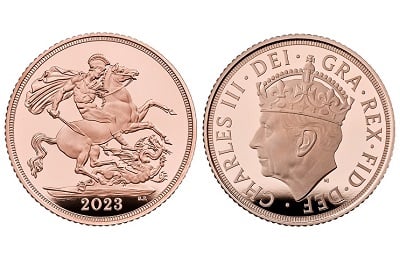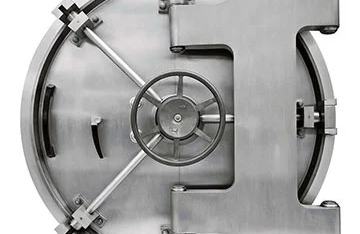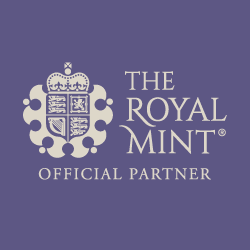Gold assay machine
There are numerous machines that are used to test and assay gold. Gold assay machines generally fall under the broader term of spectrometers, as explained below.
Spectrometers work on the principle of
X
-
r
ay
F
luorescence Spectroscopy – and in the case of gold assay machines are more commonly called
XRF
detectors. These machines can give quick, accurate indications of what metal an item is made of, and in some cases the purity of the metal as well.
A handheld XRF machine being used to check industrial metals.
A gold assay machine functions by bombarding an item with X-rays, and measuring the reflected fluorescence radiation. Every element in the world has unique characteristics and properties, and their result is their own elemental fingerprint. These readings are analysed by the machine, and indicate on screen which elements are present.
These machines range from large industrial machines, to smaller desktop units, all the way down to portable handheld XRF analysers or 'guns'. All are commonly used by jewellers, precious metal and bullion dealers, assay offices, and refiners. In the trade, these are sometimes referred to as a “Karatmeter”, as some assay machines determine the purity of gold in
carats.
Can XRF detect gold?
Before X-ray spectrometers, it was necessary to take small sample preparations from items for testing. These traditional destructive assaying tests included touchstone and acid analysis; both were time consuming, and inevitably marked or eroded the items being tested.
An XRF machine can detect multiple precious metals, including gold. At BullionByPost, we use a Niton DXL XRF instrument, made by Thermo Scientific. This machine delivers fast, accurate analysis of 21 elements, including gold, silver, and platinum.
Thermo Scientific, Niton DXL gold analysis machine.
XRF machines detect gold items and precisely identify their metal composition in real time, allowing us to test all gold coins and bars sold back to us. It also lets us test scrap gold – such as jewellery – and detect if they are gold, and the purity of the items. With this information we can give accurate valuations very quickly. In most cases this means the tests are non-destructive, though items may still require disassembly or further destructive tests to be sure.
This is the same process as used by the UK’s assay offices, who switched to using XRF machines in 2005. In cases where there is still uncertainty, then older destructive methods remain as a good secondary test to carry out.
Gold verification machines
The use of XRF technology to identify metal composition was first proposed by German physicists Richard Glocker and Wilhelm Schreiber in 1928. They were the first to perform quantitative analysis of materials using XRF. Their work was the culmination of research by English physicist Henry Moseley who had earlier observed and measured the X-rays of various elements.
The first practical applications for Glocker and Schreiber’s techniques came in the 1940s. Then 10 years later came the first commercially produced X-ray spectrometers.
Using gold verification machines like XRF also offers a cleaner way of testing gold , as they reduce the need for high temperature testing, and the use of chemicals and acids.
A good quality XRF machine is not cheap, and requires regular calibration to ensure that the results are accurate. They need to be handled by a qualified operator who selects a sample size – generally the largest possible available. In most cases this will return a clear result, but in some cases a spectrum-graph can be displayed, showing the various results, allowing the operator to determine the metal and purity for themselves, or decide to carry out further tests.
BullionByPost buy back gold coins, bars, and scrap jewellery, offering market-leading rates. If you would like to sell scrap gold to us, simply call us on 0121 634 8060 for a quote and the team will be happy to help.
- How To Buy Gold
- How to Buy?
- Payment Options
- Delivery Options
- Gold Storage
- Storage at Brink's
- Gold Investment Guide
- Why buy gold?
- Is gold a good investment?
- Why physical gold?
- Best time to buy gold?
- Gold bars vs coins?
- Gold vs Silver
- Gold - Silver Ratio explained
- VAT on bullion
- CGT on bullion
- Legal tender coins
- Top 5 Gold Investments
- Top 5 Silver Investments
- Gold vs ISAs
- Gold vs Buy-to-Let
- Gold vs FTSE 100
- Gold vs Bitcoin
- Where to buy gold?
- Why buy from us?
- Where to sell gold?
- Coin Shops
- Gold Price Forecasts
- Top 10 Gold Producers
- Top 10 Gold Reserves
- Gold Britannia vs Sovereign
- Britannia coin designs
- Sovereign coin designs
- Sovereign Mintages
- Sovereign mint marks
- British coin specs
- What is a proof coin?
- Royal Mint bullion
- The Queen's Beasts
- Royal Mint Lunar Coins
- Bullion Refiners
- British coin mints
- Krugerrands
- Gold Tola - India & Pakistan
- Bullion Index







